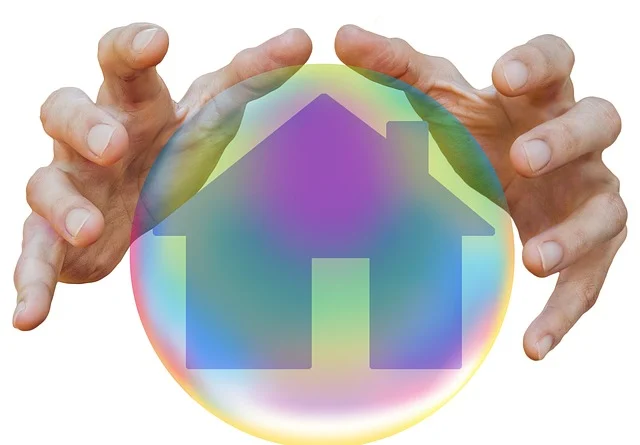Refinancing a home loan can be a strategic financial move, but it’s crucial to understand the costs involved. From application fees to closing costs, each expense contributes to the overall cost of refinancing. This guide explores the various expenses associated with refinancing a home loan, helping you make informed decisions about your financial future.
Factors Influencing Refinance Costs
Closing Costs
Closing costs for refinancing typically include fees for processing your loan application, conducting a title search, and closing the loan. These costs can vary based on your lender and location.
Appraisal Fees
An appraisal may be required to determine the current value of your home. This fee ensures that the property’s value meets the lender’s requirements for refinancing.
Title Search and Insurance
A title search verifies ownership of the property and identifies any existing liens. Title insurance protects the lender (and sometimes the homeowner) against any issues with the property’s title.
Types of Refinancing Costs
Upfront Costs
Upfront costs are paid at the time of refinancing and include application fees, appraisal fees, and any points you choose to pay to lower your interest rate.
Ongoing Costs
Ongoing costs include monthly mortgage payments, property taxes, and homeowner’s insurance, which continue throughout the life of the loan.
Potential Savings from Refinancing
Despite initial costs, refinancing can lead to long-term savings by securing a lower interest rate, reducing monthly payments, or shortening the loan term.
Common Fees Associated with Refinancing
Application Fees
Application fees cover the cost of processing your loan application and can range from a few hundred to several thousand dollars.
Origination Fees
Origination fees compensate the lender for processing your new loan. They are typically calculated as a percentage of the total loan amount.
Points
Points are prepaid interest that can be paid at closing to lower your interest rate over the life of the loan. Each point typically costs 1% of the loan amount.
Additional Considerations
Prepayment Penalties
Some loans may have prepayment penalties if you pay off your existing mortgage early through refinancing. Be sure to review your current loan terms.
Tax Implications
Refinancing may have tax consequences, such as deductions for mortgage interest. Consult a tax advisor to understand how refinancing could affect your tax situation.
Break-Even Point Calculation
Calculate your break-even point to determine how long it will take to recoup the costs of refinancing through lower monthly payments or reduced interest rates.
Steps to Minimize Refinancing Costs
Negotiating Fees
Negotiate with lenders to reduce or waive certain fees, such as application fees or origination fees, to lower your overall refinancing costs.
Comparing Lenders and Offers
Shop around and compare loan estimates from multiple lenders to find the most competitive rates and fees for your refinancing needs.
Understanding the Loan Estimate
Review the Loan Estimate provided by each lender, which outlines the terms of the loan, projected payments, and estimated closing costs.
Benefits of Refinancing Despite Costs
Lower Interest Rates
Refinancing can secure a lower interest rate, reducing your monthly payments and saving you money over the life of the loan.
Debt Consolidation
Consolidating high-interest debt into your mortgage can lower your overall interest rate and simplify your monthly payments.
Access to Equity
Refinancing allows you to access the equity built up in your home for home improvements, debt consolidation, or other financial needs.
Risks and Caveats
Impact on Credit Score
Applying for refinancing may temporarily lower your credit score due to credit inquiries and new credit accounts. Monitor your credit during the process.
Potential for Higher Long-Term Costs
Extending your loan term through refinancing may lower monthly payments but result in higher overall interest costs over the life of the loan.
Conclusion
Understanding the costs associated with refinancing a home loan is essential to making informed financial decisions. While refinancing can offer significant benefits, it’s crucial to weigh the upfront expenses against potential long-term savings. By comparing offers, negotiating fees, and calculating your break-even point, you can determine if refinancing is the right choice for you.
FAQs about Refinancing Costs
What are typical closing costs for refinancing?
Closing costs for refinancing can range from 2% to 5% of the loan amount and may include appraisal fees, title insurance, and origination fees.
How can I calculate if refinancing is worth it?
Calculate your break-even point by dividing the total refinancing costs by your monthly savings. This will tell you how many months it will take to recoup the costs through lower payments.
Are there ways to reduce refinancing fees?
Yes, you can negotiate with lenders to reduce or waive certain fees, shop around for competitive rates, and consider refinancing with your current lender.
What happens if I can’t afford refinancing costs?
If upfront refinancing costs are prohibitive, explore options like no-closing-cost refinancing or rolling costs into the loan, though these may have trade-offs.
How long does it take to recoup refinancing costs?
The time to recoup costs varies based on your new loan terms and the savings achieved. Typically, it ranges from several months to a few years.
